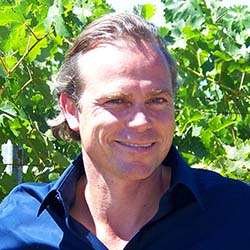
|
|
PRINT » |
|
|
E-MAIL THIS PAGE » |
|
|
CLOSE THIS WINDOW » |
News Headline March 16, 2012
California Wine Industry in Shortage
Speakers tell Central Coast vintners that balance is not expected for years

Turrentine said that in 2011 California shipped out 257 million cases of wine, while the 2011 harvest only yielded the equivalent of 210 million cases—a disparity of 47 million cases, or 750,000 tons.
Turrentine said vineyard plantings did not keep pace with demand, and the recession had winery owners clearing out inventory. With actual inventory of bulk wine is at its lowest point in more than a decade, Turrentine described the situation as a structural shortage. “There’s not enough grapes for everyone to get what they want,” he said. “We’ve all kind of run dry at the same time.”
Speaking to a crowd of about 200 Central Coast winery owners and grapegrowers, Turrentine detailed how the area’s 2011 harvest was especially bitter. An ill-timed frost and disease pressure trimmed the Central Coast harvest by nearly 30%, a loss of about 25 million gallons, an amount he likened to the highest point of the bulk wine glut in 2002.
Today bulk wine inventories are below 5 million gallons, and Turrentine said he expects no additional flow of wine to enter the market. “We’re below 5 (million gallons), and we expect to stay there. That’s not a balanced market, that’s a short market.”
In the past 12 months, Turrentine said most prices for the bulk wine have doubled. “The limited supply is being allocated by price,” he said.
The global market is also tight. Turrentine said there is no wine-producing nation with an untapped reservoir of wine. Spain—traditionally a good market for affordable, quality wine—is effectively sold out, he said.
Growers and wineries will need to plant more, but Turrentine said it would take four to six years to equalize the market. Plus, the challenges to planting more vineyards—tight credit, lack of nursery stock, land costs regulations and water—are ever present.
Long-term contracts vital
Mark Couchman, president of Silverado Premium Properties, recalled a negociant winery that was having trouble trying to sell just two years ago. At the time, he said, long-term grower contracts were viewed as a liability; today those same contracts are seen as vital to surviving the changed market.
Couchman’s comments came during a panel discussion about the future of the Central Coast wine industry. Joining Couchman on the dais was Jeff Menashe, president of Demeter Group, and Jean-Charles Boisset, president of Boisset Family Estates.
Boisset had nothing but enthusiastic praise for the Central Coast. He said the drive from Napa to San Luis Obispo reminded him of the drive from Burgundy to the south of France. The Central Coast is home to an exquisite terroir, Boisset said, and the name “Monterey” is known throughout the world as a top tourist destination. “We’re all sitting on the future gold rush,” he said.
Boisset Family Estates formed a partnership with Lockwood Vineyard in 2011, and Boisset said the winery’s 1,850-acre vineyard is a testament to the audacity and hopefulness that he finds so inspiring about American entrepreneurship.
Yet Boisset also cautioned that people must not forget the terroir of the Central Coast and not deviate from varieties that are best suited for the area. Producers also should focus on making the finest wines possible. “My advice is to always focus on premium or super premium grapes. That’s where America belongs,” he said. “America does not belong in selling $2.99 or $3.99 wine in an emerging market.”
Menashe said the United States is on track to consume 500 million cases of wine per year by 2025. To meet that growing demand, he said vineyard planting needs to take “a gigantic leap forward.”
In addition to planting vines, Menashe said he expects there to be growing interest in buying or acquiring Central Coast and North Coast brands that have or can be repositioned to offer a California label. Lastly, he said there needs to be a significant investment in increasing winemaking capacity.
Survey of local growers
Nearly nine out of every 10 growers in the Central Coast think this year will be better than 2011, according to a survey conducted by the Wine Symposium Group. Growers also expect higher profits, and 11% reported that they expect to plant more than 100 acres.
David Freed, chairman of The Silverado Group, presented the survey and said based on the findings, “It seems like a very positive year.”
A survey of winery owners and winemakers found that Cabernet Sauvignon and Pinot Noir will be in high demand, while the demand for Syrah and Merlot will stay at the same level.
The survey also found that most respondents in the Central Coast area expect that Cabernet Sauvignon will fetch higher prices this year. “Cabernet, from your perspective and ours, is hot and getting hotter,” Freed said.
Industry members see the improving economy, large wineries buying more grapes and increased direct-to-consumer sales as the most positive trends. Possible challenges, however, could include a slow economic recovery, imports gaining market share and tight credit.
More than 60% of those surveyed said vineyard development would require investment in the next three years. Only 30% said fermentation and barrel capacity would need investment. The results of the full survey will be available March 19 at winesymposium.com.
|
|
PRINT » |
|
|
E-MAIL THIS ARTICLE » |
|
|
CLOSE THIS WINDOW » |
